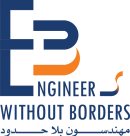CULTURE & VALUES
Principle One: Focus on People
Humanitarian engineering is the creation of technologies that help people. To ensure that our humanitarian development projects will have a tangible and direct impact, the top-priority focus must be the people. We develop solidarity with the people and community we work with.
Principle Two: Relate, Listen, Ask, Cooperate, Empower
We form a good relationship with the people in the community we work with that leads to the promotion of community participation in our projects right from the start. We partner community in assessing their needs, and decide their priorities
Principle Three: Understand Social and Physical Context
The “power structure” in a community affects a lot about what can and cannot be achieved in our projects, and sometimes how the benefits of a technology are shared. We understand the social and physical context of the people in a community we serve
Engineers Without Borders Yemen is guided by a set of humanitarian engineering principles when working in communities
Principle Four: Be a Professional Humanitarian Engineer
Being professionals, we take care of building our team’s competencies in science, technology, and social and environmental context. We connect competencies to conduct to ensure our help stance concern with the well-being of the community in all things we do
Principle Five: Build Local Capacity
We build local capacity to give communities “ownership” of the development process and ensure longer-term success that may lead the community to become able to deploy innovative solutions with no outside help.
Principle Six: Ensure Long-Term Positive Impact
We design reliable solutions that thrive in the physical and social context in which it is implemented. With training, locals can perform repairs and ensure proper and fair sustainable operations.
Principle Seven: Understand Impact from Social Context
We understand the impact of our projects from the local social context. With a good working relationship, the local may open up the possibility of using resources that we or others may not know about. The social context will strongly impact what a community needs and wants to do.
Principle Eight:
Design for Sustainability
We design our projects for sustainability and keep in mind the concept of humanitarian engineering in all project cycles. We ensure that while promoting human development we do not at the same time destroy the planet.
Principle Nine: Assess Outcomes
We assess our projects outcomes to ensure the desired effects are found in practice, undesirable effects of consequences are not found, to provide a measure of solution quality to assess if there is a need for redesign and improvement of the intervention; and to provide a base-line for solution quality to build on for future design iterations as well as to ensure long-term success of the project.
Principle Ten: Promote Human Dignity, Rights, and Fulfillment
We promote social justice, human rights, human fulfillment, and we are committed to humanitarian aid work principles.



